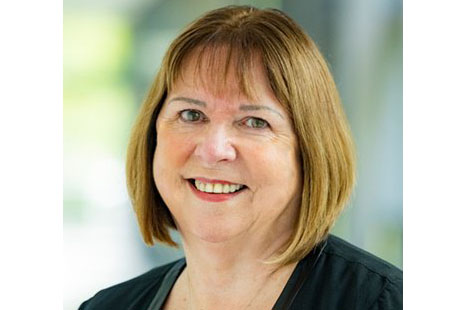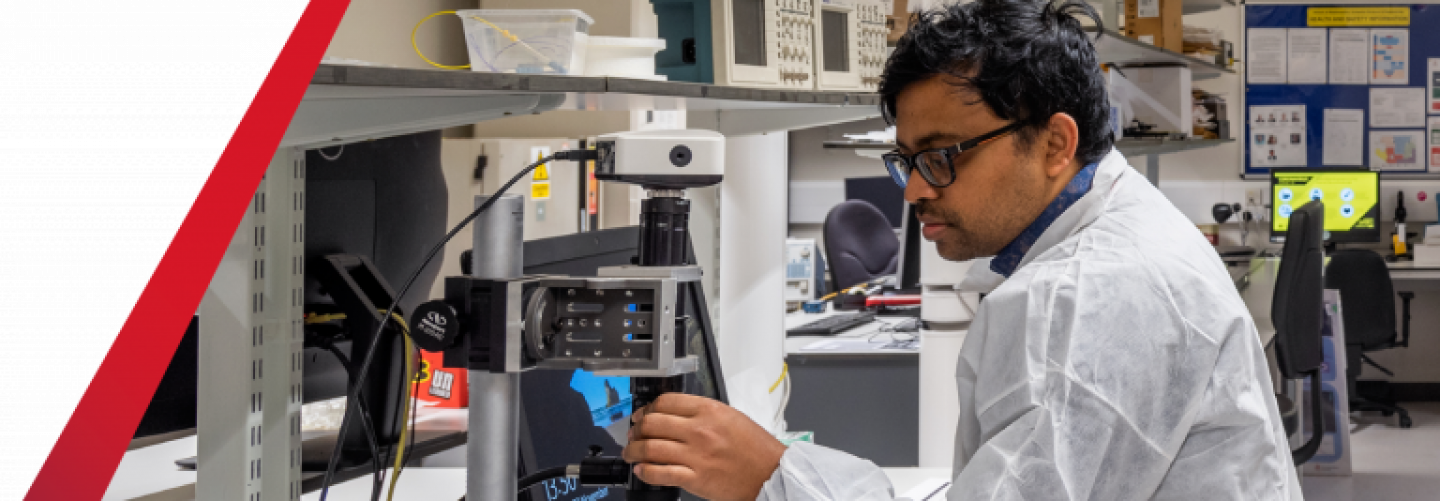Dame Wendy Hall has also received an MSc in Computer Science and an Honorary Doctorate from City in 1986 and 2013 respectively.
By Mr John Stevenson (Senior Communications Officer), Published
City, University of London’s School of Science and Technology will honour four of its most outstanding alumni at the second edition of the STEM Alumni Awards on 7th September 2023.
Professor Dame Wendy Hall (MSc Computing, 1986, Honorary Doctorate of Science, 2013) is the recipient of the Distinguished STEM Alumni Award. Jaz Rabadia (BEng Mechanical Engineering, First Class, 2006 and MSc Energy, Environmental Technology and Economics, Distinction, 2009), has received ‘Special Recognition’ in the 'Distinguished STEM Alumni Award' category; Dr Fatemeh Najibi (PhD in Computer Science, 2021) has been awarded 'Special Recognition' in the 'Excellence in STEM Achievement' category; and Dr Mithileysh Sathiyanarayanan (PhD Computer Science, 2020) has received the ‘Excellence in STEM Achievement Award'.
Dame Wendy, DBE, FRS, FREng is Regius Professor of Computer Science, Associate Vice President (International Engagement) and is Executive Director of the Web Science Institute at the University of Southampton.

She became a Dame Commander of the British Empire in the 2009 UK New Year's Honours list and is a Fellow of the Royal Society, the Royal Academy of Engineering and the ACM. Dame Wendy was co-Chair of the UK government’s AI Review, which was published in October 2017 and a member of the AI Council.
Dame Wendy is currently the co-Chair of the ACM Publications Board and Editor-in-Chief of Royal Society Open Science. She is also a member of the Digital and Computing Skills Education Taskforce established by the Department of Education in 2023.
In February 8th 2023, Dame Wendy delivered City’s Athena Swan lecture for the School of Science and Technology on the highly informative topic of Data, Geopolitics and the Governance of Cyberspace.
Dame Wendy shared highlights from her times at City and her professional career with City News.
City News: What were your motivations for studying at City?
Dame Wendy Hall: I studied mathematics at the University of Southampton in the 1970’s and stayed there to study for a PhD in Pure Mathematics which I completed in 1977. I loved mathematics but I wanted to teach in higher education and there just weren’t any jobs in maths departments at the top UK universities at that time. I got a job teaching maths to engineers at what was then Oxford Polytechnic (now Oxford Brookes University) for a year, and then moved back to Southampton for a job teaching maths to trainee teachers at Las Sainte Union College (LSUC), but I really wanted to be more involved in research. One of the only growth areas that I could consider moving into in the early 80’s was computing. It was the advent of the personal computer (Sinclair Spectrum, Commodore PET, etc). I was asked to set up a computer programming course at LSUC so I took a Commodore PET home with me one summer and taught myself the BASIC programming language - and the rest as they say is history. I began to realise the potential for personal computers in education and other aspects our lives generally. I decided if I was going to move into computing I needed to know more about it. So I looked around for part-time MSc conversion courses (as they were called then) in computing and that is how I ended up at City. London was commutable from Southampton. It was one day a week in term time for two years. No on-line learning then. I travelled up to London for the lectures and to do the coursework on the computers at City as there was no on-line access to them either.
CN: What were the highlights and challenges of your postgrad degree programme?
DWH: We are talking an eon ago in terms of computer science education. I started the course in September 1980 as I recall, finished the taught courses and final examinations in September 1982 and then took two years to complete my MSc project by which time I had moved back to the University of Southampton as a lecturer in Computer Science. So, clearly, one of the highlights is that it helped me to secure a job as a Lecturer in Computer Science. I had no real research track record in computing but as I had a PhD from Southampton I think they thought it wouldn’t be too hard for me to develop one - and they were right!
But back to the MSc at City. It wasn’t the perfect course. It was a very old-fashioned syllabus in many ways because it included analog computing (many of you reading this will have to look up what that means!). The course also had a focus on mainframe computing languages and operating systems while I wanted more courses looking to the future of personal and distributed computing. I remember my first analog computing lab. You needed a stopwatch or at least a second hand on your watch (no smart phones or digital watches in those days). I had a small watch with no second hand and there weren’t enough stop watches to go around. I remember the professor who was supervising the lab chiding me for the fact that he had taught women students before and we never had the right sort of watch! Which leads me to my second challenge – diversity. There were about 100 students on the course, of which three were women. One of the women dropped out very early on leaving Annette and I sitting at the back of the lecture theatres leaving the “boys” at the front of the class to ask questions that showed off their expertise in computing (many of them were already working as computer programmers in industry while Annette and I were both academics). This always distracted the lecturer from actually teaching the course to the majority of the class, who like Annette and I
were starting from scratch. Interestingly, after exams at the end of the first year, there were only just over 50 students left in the class – many of the boys had fallen by the wayside. Annette and I both supported each other to complete the course and stayed friends for many years. Without her support I’m not sure I would have stayed the course – she said the same. This taught me many lessons about why there are so few women in computing in the UK and about the need to address diversity generally in computing courses. The UK was at the time heading for a culture of computing being toys for the boys – a culture to this day we have not managed to shift.
On a much more positive note, the course gave me what I needed which was a qualification in computing and a grounding in the basics of programming languages, operating systems, compilers, networks, database and even some early HCI courtesy of Professor Susan Jones, who I stayed in contact with for many years. I’m pretty sure she was the only female lecturer on the course at that time. I did a project with her on the topic of Intelligent Tutoring Systems using Prolog as the implementation language. In those days such systems were still in the realm of science fiction and it’s so interesting today to see those early ideas actually beginning to come to fruition nearly 40 years on. I will always be grateful to City for giving me the grounding I needed in computing to enable me to develop my research ideas in the world of multimedia and hypermedia in the 1990’s and beyond.
CN: Your academic focus over the years has centred around the development of the internet. What in your view are some of the positive and negative implications of this development for women and girls?
DWH: How I wish I could say that the development of the internet has led to more women becoming interested in computing! Alas that is not the case. Although the whole of society is invested in use of the internet and social media, the world of computing that is the technological driver for this phenomenon is still very male dominated. I worry so much about the lack of diversity in the teams that are designing and developing the systems that we use all the time in every aspect of our lives, and this will only be compounded as we move into the era of AI. Despite everyone talking about the importance of diversity, and many programmes being set up to try and change this, we never seem to find a way to actually shift the needle. My time at City illustrated the stark reality of the situation as it impacted on me as a student during my conversion course MSc. I know the computing department at City is much more diverse than it was in the 1980’s, as are all computing departments in other universities around the UK, but we still don’t know how to shift the culture to make computing something that more women and girls are attracted to.
While I was Head of Department and then Dean at Southampton I tried very hard during my years in senior management to make a difference in terms of diversity in computing without much of what I consider real success. The world around us is changing all the time in terms of the now established norms of equality, diversity and inclusiveness (EDI) but the world of computing seems somehow impervious to this because we just can’t make it a world that is attractive to a wide enough group of people. I am still passionate about trying to make this happen.
